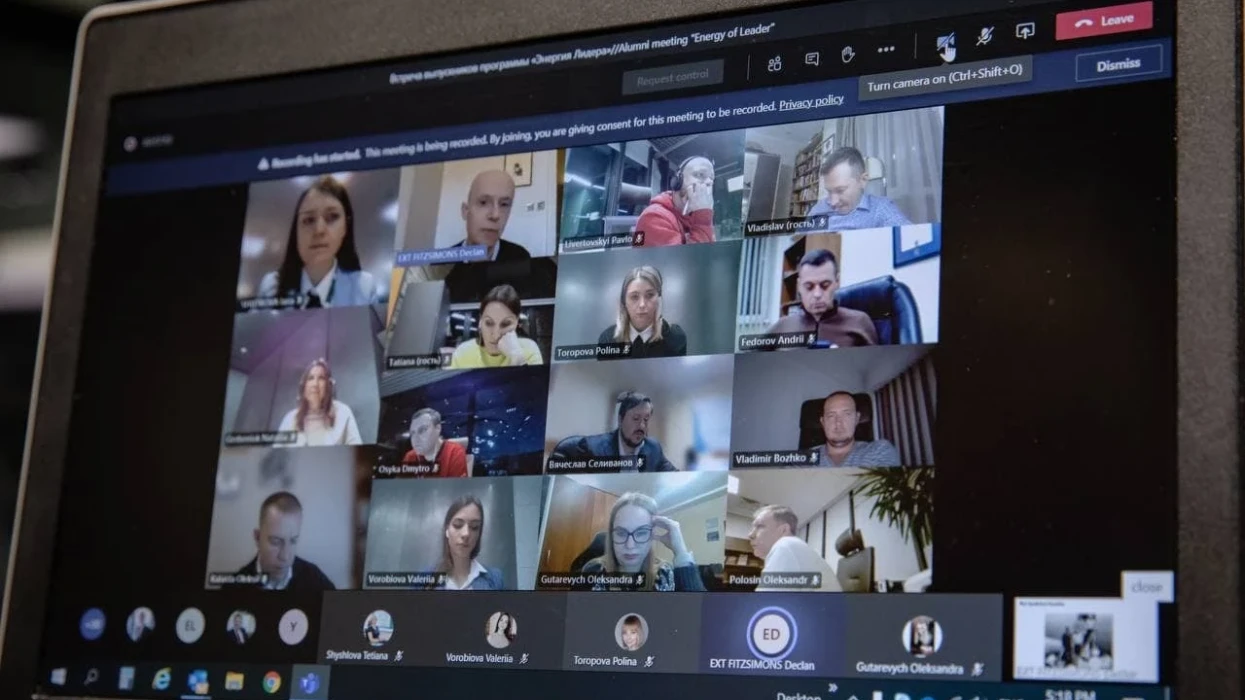Resilience is our ability to experience and become stronger after difficult life situations and return to our previous state. This skill allows us to recover from change or hardship, whether in the workplace or in life in general.
Today, as we adjust to unprecedented social distancing and public health demands in our professional and personal lives, change seems to be coming at lightning speed - and our resilience is being tested more than ever.
“Leaders must think bigger and be able to foresee how crises will continue to affect the competitive environment and what society as a whole will need in the coming months and years,” says Valeria Zabolotna, Rector of the Academy DTEK.
As a leader, it is important to demonstrate resilience to colleagues at work, for someone who is resilient to external influences can demonstrate the ability to perceive failure as something small and persist in order to quickly become resourceful. In difficult times, employees expect emotional strength and courage from you. They rely on the leader and his ability to make quick and high-quality decisions under the influence of various external adverse factors.
How to become more resilient? We are sharing some thoughts on the outcome of the meeting of graduates of the 4 streams of Academy DTEK Management Development Program “Energy of Leader” with Declan Fitzimons, Professor of Organizational Behavior at INSEAD.
- A sustainable leader, first of all, is able to find meaning even in the most difficult situations. Because those who understand why will always cope with any how.
- Develop and maintain a wide network of personal and professional contacts. Personal relationships create a strong foundation of support - a critical element in achieving goals, overcoming challenges, and developing personal and managerial potential. Remember, relationships are critical to your team's effectiveness!
- Regular exercises not only lowers blood pressure and cholesterol levels, but also improve your ability to cope with stress and at the same time enhances your ability to cope with challenging situations.
- Scientifically proven that getting 7-8 hours of healthy sleep every night improves your performance.
- Whether you are celebrating success or struggling, take time to be mindful. Mindfulness promotes learning, new perspectives, and a degree of self-awareness that can increase your resilience to external factors.
- Embrace new ideas (create new approaches and implement them), develop a variety of skills and apply them in times of change. Don't cling to old habits and skills just because they are familiar to you, especially when it is obvious that they no longer work. Remember, great leaders are also great students!
- Deliberately and consciously enhance and prolong your positive moods, experiences and emotions. Consciously enjoying great moments in life is important, as research in neuroscience shows, especially important because our brains are prone to negative perceptions of stressful situations, thus managers must consciously strive to positive in order to consolidate sustainable leadership.
- Take time to become aware and appreciate the little things that happen to you during the day. The more often you practice gratitude, the more things will naturally generate feelings of gratitude. Gratitude really makes you a better leader.
“Meetings of graduates of transformational long-term development programs are important as a continuation of the philosophy of life-long learning, as well as support and rethinking of everything that participants received during their studies,”- notes Maryana Khomitska, Head of the Talent Development at the Academy DTEK.







